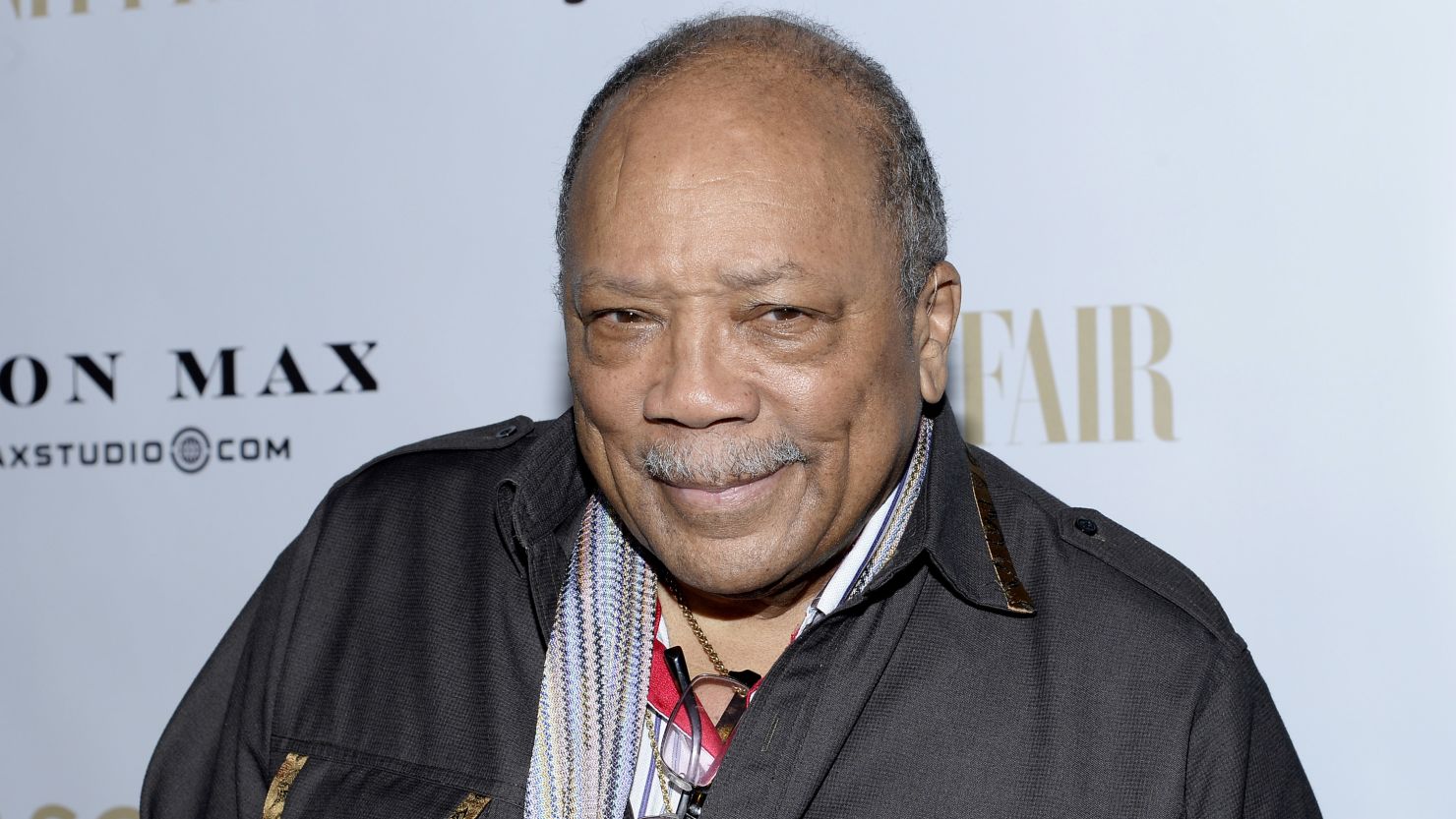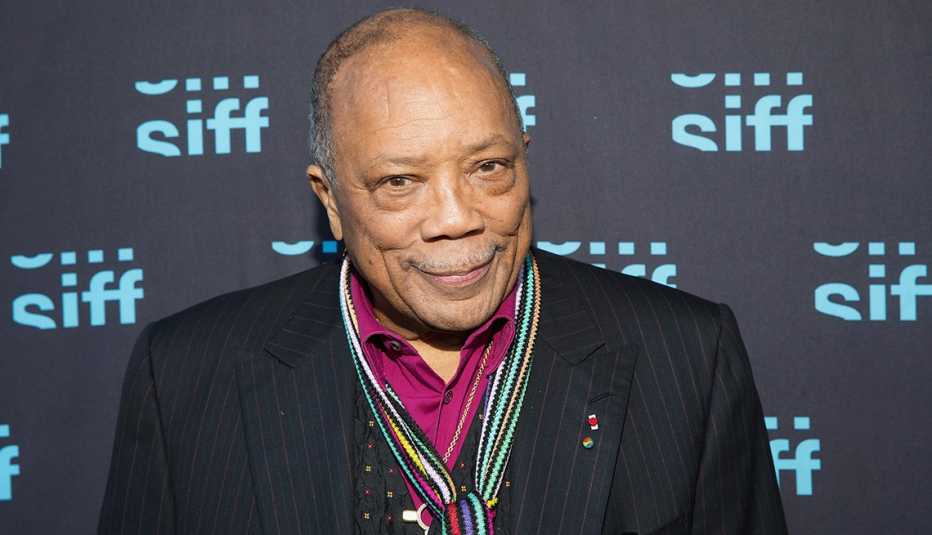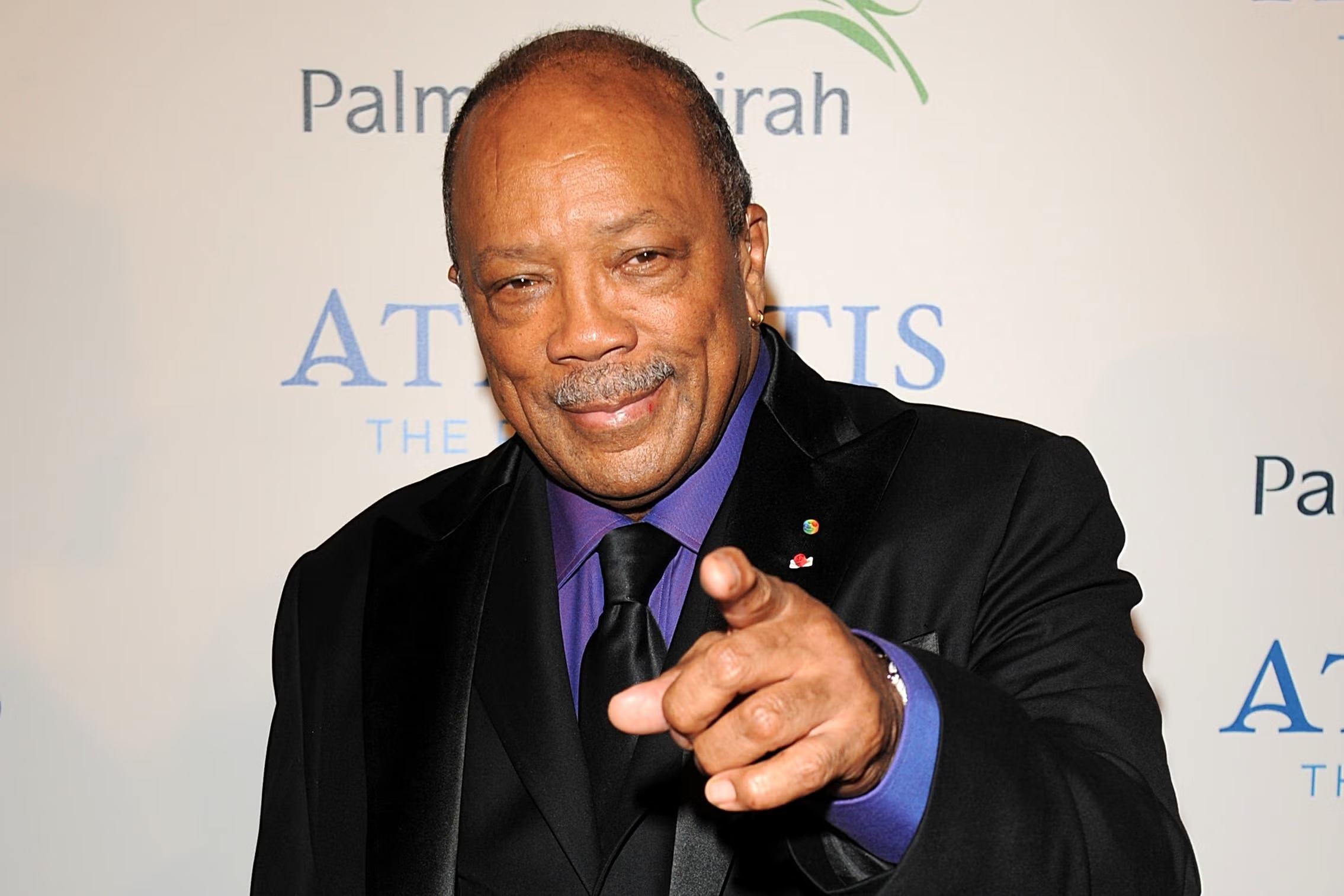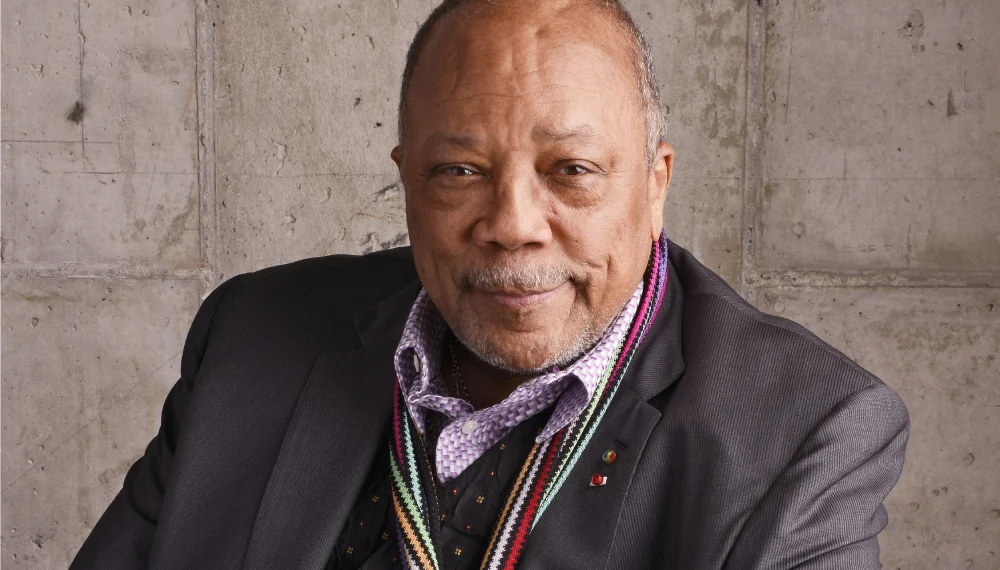Quincy Jones was a monumental figure in music. Known for his versatile career as a conductor, producer, trumpeter, arranger, and television producer, Quincy amassed a net worth of $500 million by the time of his passing on November 3, 2024, at the age of 91. His death marked the end of a remarkable career spanning over six decades.
Quincy Jones’s influence in music cannot be overstated. He was a pioneering producer, composer, and trumpeter, whose work changed the terrain of modern music. Starting from his early years in Seattle, Jones began playing the trumpet as a teenager and immersed himself in the jazz scene in the 1940s. His passion for music led him to work with legendary artists in the 1950s, including Sarah Vaughan and Ray Charles. His role as an arranger for these stars laid the foundation for his future success.
Jones’s career reached new heights when he joined Mercury Records as the first African American executive in 1961. This was just one of his groundbreaking achievements, as he later became known for his film and television compositions, earning multiple Oscar and Emmy nominations. His most famous collaboration was with Michael Jackson, producing three albums, including the iconic Thriller, which became the best-selling album of all time. This partnership resulted in more than 150 million records sold, with Jones continuing to earn royalties from each sale or broadcast of their work.

Throughout his career, Quincy Jones worked with countless artists such as Frank Sinatra, Lesley Gore, and many more, contributing to their success. He also played a pivotal role in humanitarian efforts, particularly through his involvement in the recording of “We Are the World,” which raised millions for famine relief in Africa. Jones’s contributions were recognized with 28 Grammy Awards, including the Grammy Legend Award, the Grammy Living Legend Award, and the National Medal of Arts.
Early Life: Roots of a Musical Genius
Quincy Delight Jones Jr. was born on March 14, 1933, during the era of the “Great Migration,” when his family moved to Chicago while Quincy and his brother were still young. His first exposure to music came through religious songs, and he learned to play the piano from his neighbor’s instrument. However, his childhood was marked by difficulty, including his mother’s mental health struggles and eventual hospitalization. After his parents divorced, Quincy’s father remarried, bringing additional siblings into the family.
During World War II, the Jones family moved to Washington, where his father worked at a naval shipyard. Following the war, the family relocated to Seattle, where Quincy attended high school. It was in Seattle that Quincy received a formal musical education, honing his skills as a trumpet player and composer. His talent was evident early on, as he became involved with the local jazz community and even met Ray Charles at the age of 14.
In 1951, Quincy Jones received a scholarship to attend Seattle University, where he briefly studied before transferring to the prestigious Berklee College of Music in Boston. Although he continued to study music at Berklee, Quincy also began performing jazz at local bars. It soon became clear that he was ready to begin his professional music career, and he left Berklee to pursue his passion full-time.

Career Breakthrough: From Arranger to Icon
After leaving college, Quincy Jones moved to New York City, where his talent as an arranger quickly gained recognition. He played trumpet in various bands while establishing himself as a skilled composer. One of his early gigs included supporting Elvis Presley’s first televised appearances in 1956. This experience marked the beginning of Jones’s international career, which eventually led him to Paris. He later became the music director for the French record label Barclay.
In 1961, Quincy Jones made history by becoming vice president of Mercury Records, the first African American executive at the company. During this time, he also started composing music for films, with his first movie score being for The Pawnbroker. His reputation as a talented film composer grew, and he composed the music for numerous Hollywood films such as The Italian Job, The Getaway, and The Deadly Affair. Jones also gained recognition for his work on TV themes, including The Bill Cosby Show and Roots.
In addition to his work in film and television, Quincy Jones collaborated with numerous musicians, producing for artists such as Peggy Lee, Shirley Horn, and Frank Sinatra. In the 1970s, he formed his own production company, Qwest Productions, and continued to expand his creative ventures. One of his major successes came in 1981 with the release of The Dude, an album that featured songs written or produced by Jones, winning three Grammy Awards.

Quincy Jones’s Landmark Collaboration with Michael Jackson
Without a doubt, the most significant chapter of Quincy Jones’s career was his partnership with Michael Jackson. Their collaboration began in 1978 when they met on the set of The Wiz. Quincy was the musical director, while Michael starred as the Scarecrow. Impressed by Jackson’s talent, Jones agreed to produce Jackson’s first solo adult album, Off the Wall, released in 1979. This album marked a pivotal moment in Jackson’s career, and it sold over 20 million copies worldwide.
The duo’s next collaboration, Thriller (1982), became the best-selling album of all time, with more than 70 million copies sold globally. Jones’s innovative production style helped shape classic tracks such as “Billie Jean,” “Beat It,” and the album’s title track. Their final album together, Bad (1987), sold over 35 million copies and produced five Billboard Hot 100 #1 singles.
Their partnership was groundbreaking in every sense. Jones’s extensive background in jazz and orchestral music complemented Jackson’s pop sensibilities, creating a new sound that resonated with a wide audience. Together, they pushed musical boundaries and transformed the way music was produced, performed, and marketed. The combined album sales of their work totaled over 150 million copies, cementing their place in music history.
Real Estate and Legacy
In December 1986, Quincy purchased a home in Bel Air for $3 million, an equivalent of around $7 million today. He sold the property in 2005 for $5.4 million after completing the construction of a 25,000-square-foot compound in the same area. Today, the value of this estate is estimated to be worth between $25 and $30 million.
Quincy Jones’s legacy is one of unparalleled influence in music, film, and beyond. He was a true visionary whose work transformed not only the music industry but also popular culture. His contributions continue to resonate, and his impact will be felt for generations to come.




